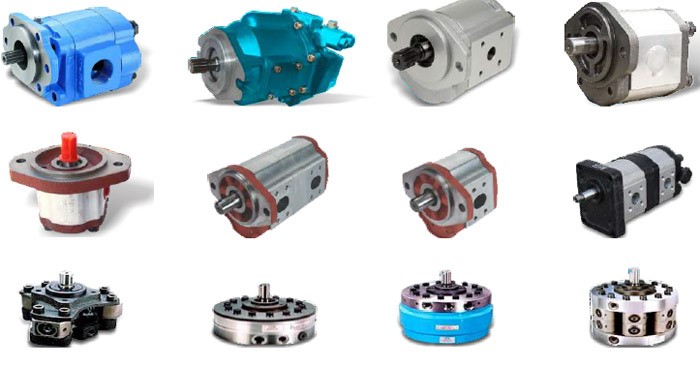A Hydraulic Pump is a mechanical device that converts mechanical power into hydraulic energy by generating fluid flow and pressure. This pressurized hydraulic fluid is then used to perform various tasks in hydraulic systems across numerous industries. Hydraulic pumps offer several benefits and advantages that contribute to the efficient operation of hydraulic machinery and equipment. Here's some content highlighting the features, advantages, applications, and benefits of hydraulic pumps:
Content:
Hydraulic Pump:
Powering Fluid Energy for Diverse Applications
A Hydraulic Pump is a fundamental component of hydraulic systems, playing a crucial role in transforming mechanical energy into hydraulic power. By creating pressurized fluid flow, hydraulic pumps facilitate a wide range of applications across industries, from heavy machinery to precision equipment. Here's a look at the benefits, features, and applications of Hydraulic Pumps:
Key Features of Hydraulic Pumps:
Fluid Transformation: Hydraulic pumps convert mechanical energy, typically provided by electric motors or engines, into hydraulic energy by pushing hydraulic fluid through the system.
Pressure Generation: These pumps create pressure within the hydraulic fluid, which is then harnessed to perform tasks like lifting, moving, or controlling equipment.
Variety of Types: Hydraulic pumps come in various types, including gear pumps, piston pumps, vane pumps, and axial piston pumps, each designed for specific applications and operational requirements.
Advantages of Hydraulic Pumps:
Efficient Power Transmissions : Hydraulic pumps provide efficient transmission of power, enabling heavy-duty machinery to perform tasks with precision and reliability.
High Force Generation: Hydraulic pumps generate substantial force, making them suitable for applications demanding significant power output, such as construction equipment and manufacturing machinery.
Controlled Operation: The pressure generated by hydraulic pumps allows for precise control over equipment movement and operation, enabling smooth and accurate tasks execution.
Flexibility: Hydraulic pumps can be easily integrated into different systems, adapting to various hydraulic requirements and machine setups.
Versatility: Hydraulic pumps serve diverse industries, from construction and manufacturing to automotive, aerospace, and marine, showcasing their adaptability to various tasks.
Applications of Hydraulic Pumps:
Construction Industry: Hydraulic pumps power heavy construction equipment like excavators, bulldozers, and cranes, enabling efficient digging, lifting, and material handling.
Manufacturing Processes: In manufacturing, hydraulic pumps are used in injection molding machines, presses, and other equipment requiring precise force application.
Automotive Sector: Hydraulic pumps play a role in vehicle braking systems, power steering, and suspension systems, enhancing vehicle control and safety.
Aerospace Applications: Hydraulic pumps contribute to aircraft landing gear systems, control surfaces, and hydraulic actuators, ensuring safe and reliable flight operations.
Material Handling: Forklifts, conveyors, and other material handling equipment utilize hydraulic pumps for controlled lifting and movement of goods.
Benefits of Hydraulic Pumps:
Efficiency: Hydraulic pumps deliver power efficiently, translating mechanical energy into hydraulic power with minimal energy loss.
Precise Control: These pumps enable precise control over force and motion, enhancing the accuracy of various processes.
Reliability: Hydraulic pumps are robust and reliable, offering consistent performance even in demanding environments.
Compact Design: Their compact size allows hydraulic pumps to be easily integrated into complex systems without consuming excessive space.
Versatile Solutions: Hydraulic pumps provide versatile solutions for diverse applications, making them indispensable in modern industries.
Conclusion:
Hydraulic Pumps are vital components driving the functionality of hydraulic systems across a multitude of industries. Their ability to generate high force, provide precise control, and deliver efficient power transmission underscores their significance in powering heavy machinery, enhancing manufacturing processes, and enabling safe and controlled operations in various sectors.

